جلد سخت سیاه و سفید
Product details
- Publisher : Oxford University Press (February 15, 2022)
- Language : English
- Hardcover : 320 pages
- ISBN-10 : 0197572383
- ISBN-13 : 978-0197572382
کتاب Governing Security After War: The Politics of Institutional Change in the Security Sector
Security assistance has become the largest component of international peacebuilding and stabilization efforts, and a primary tool for responding to civil war and insurgency. Donors and peacekeepers not only train and equip military and police forces, they also seek to overhaul their structure, management, and oversight. Yet, we know little about why these efforts succeed or fail. Efforts to restructure security forces in Iraq, Libya, South Sudan, Timor-Leste, and the Democratic Republic of Congo ended amidst factional fighting. Similar efforts in Liberia, Sierra Leone, El Salvador, Mozambique, and Bosnia and Herzegovina helped to transform security forces and underpin peace. What accounts for the mixed outcomes of efforts to restructure security forces after civil war? What is the role of external involvement on these outcomes?
In Governing Security After War, Louis-Alexandre Berg examines the political dimensions of security governance through systematic, cross-country comparison. Berg argues that the extent to which state policymakers adopt changes to the management and oversight of security forces depends on internal political dynamics, specifically the degree to which leaders need to consolidate power. The different political strategies leaders pursue, in turn, affect opportunities for external actors to influence institutional changes through means such as conditions on aid, norm diffusion, or day-to-day participation in decision-making.
Drawing on an original dataset of security governance and field research in Liberia, Bosnia and Herzegovina, and Timor-Leste, as well as mini-case studies of Iraq, Afghanistan, South Sudan, and Somalia, Berg draws out novel implications that help explain the recurrence of civil war and the impact of foreign aid on peacebuilding. Moreover, Berg provides practical recommendations for navigating the political challenges of institutional change in conflict-affected countries. Ultimately, Governing Security After War seeks to explain the success and failure of international assistance in war-torn countries and sheds light on the politics of peacebuilding.
منابع کتاب کتاب Governing Security After War: The Politics of Institutional Change in the Security Sector
کمک های امنیتی به بزرگترین مؤلفه تلاش های بین المللی برای ایجاد صلح و ثبات، و ابزار اولیه برای پاسخ به جنگ داخلی و شورش تبدیل شده است. کمک کنندگان و حافظان صلح نه تنها نیروهای نظامی و پلیس را آموزش و تجهیز می کنند، بلکه به دنبال اصلاح ساختار، مدیریت و نظارت آنها نیز هستند. با این حال، ما در مورد دلیل موفقیت یا شکست این تلاش ها اطلاعات کمی داریم. تلاشها برای بازسازی نیروهای امنیتی در عراق، لیبی، سودان جنوبی، تیمور شرقی و جمهوری دموکراتیک کنگو در میان درگیریهای جناحی پایان یافت. تلاش های مشابه در لیبریا، سیرالئون، السالوادور، موزامبیک و بوسنی و هرزگوین به تغییر نیروهای امنیتی و ایجاد صلح کمک کرد. نتایج متفاوت تلاشها برای بازسازی نیروهای امنیتی پس از جنگ داخلی چیست؟ نقش دخالت خارجی در این پیامدها چیست؟
لویی الکساندر برگ در «حکم امنیت پس از جنگ »، ابعاد سیاسی حاکمیت امنیتی را از طریق مقایسه سیستماتیک و بین کشوری بررسی میکند. برگ استدلال می کند که میزان تغییراتی که سیاست گذاران دولتی در مدیریت و نظارت بر نیروهای امنیتی اتخاذ می کنند به پویایی سیاسی داخلی، به ویژه میزان نیاز رهبران به تحکیم قدرت بستگی دارد. استراتژیهای سیاسی متفاوتی که رهبران دنبال میکنند، به نوبه خود، بر فرصتهای بازیگران خارجی برای تأثیرگذاری بر تغییرات نهادی از طریق ابزارهایی مانند شرایط کمک، انتشار هنجارها یا مشارکت روزانه در تصمیمگیری تأثیر میگذارند.
برگ با تکیه بر مجموعه داده های اصلی حاکمیت امنیتی و تحقیقات میدانی در لیبریا، بوسنی و هرزگوین، و تیمور شرقی، و همچنین مطالعات موردی کوچک عراق، افغانستان، سودان جنوبی و سومالی، مفاهیم جدیدی را ترسیم می کند که به توضیح این موضوع کمک می کند. تکرار جنگ داخلی و تأثیر کمک های خارجی بر ایجاد صلح. علاوه بر این، برگ توصیههای عملی برای هدایت چالشهای سیاسی تغییرات نهادی در کشورهای متاثر از درگیری ارائه میکند. در نهایت، امنیت حاکم پس از جنگ به دنبال توضیح موفقیت و شکست کمک های بین المللی در کشورهای جنگ زده و روشن کردن سیاست های صلح است.

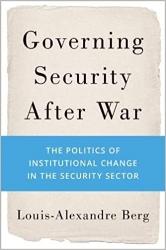
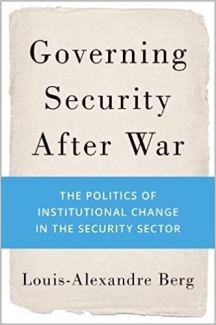

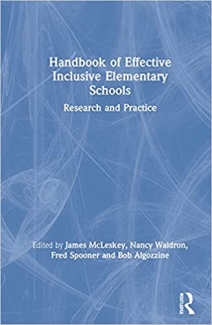

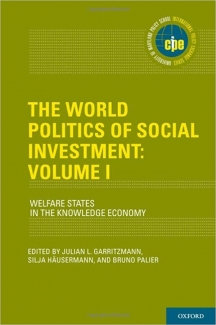

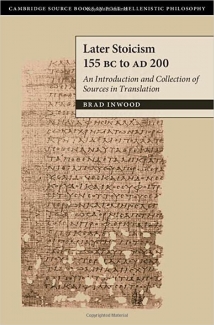
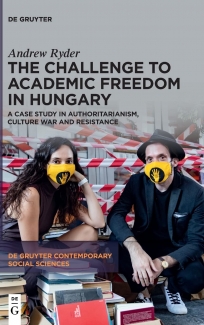





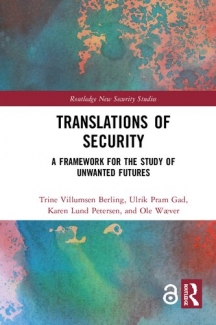



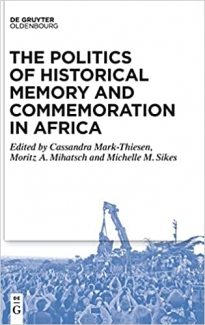












ارسال نظر درباره کتاب Governing Security After War: The Politics of Institutional Change in the Security Sector